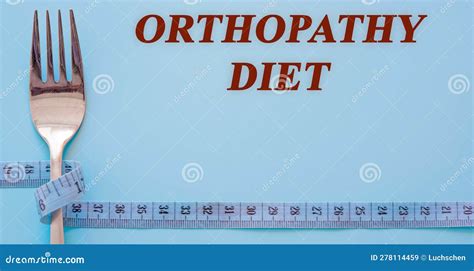Discover the definition, health benefits, types, and tips for transitioning to and maintaining a plant-based diet for improved health and wellness.
Definition of Plant-Based Diet
Contents
A plant-based diet is a diet that primarily consists of foods derived from plants, such as fruits, vegetables, nuts, seeds, whole grains, and legumes. It may also include other plant-based foods like oils and herbs. The focus of this diet is on consuming foods that are minimally processed and include a variety of nutrients and fiber. Plant-based diets exclude or minimize the consumption of animal products, such as meat, dairy, and eggs.
There are different variations of plant-based diets, such as vegetarian and vegan diets. A vegetarian diet excludes meat, fish, and poultry, but may still include dairy and eggs. On the other hand, a vegan diet excludes all animal products, including dairy and eggs. Some people may also follow a flexitarian diet, which is primarily plant-based but allows for occasional meat and animal product consumption.
Plant-based diets are becoming increasingly popular due to their potential health benefits and environmental sustainability. Research has shown that individuals who follow a plant-based diet tend to have lower risks of developing chronic diseases such as heart disease, diabetes, and certain types of cancer. Additionally, plant-based diets are often associated with reduced environmental impact, as they require fewer natural resources and produce fewer greenhouse gas emissions compared to diets high in animal products.
In conclusion, a plant-based diet is characterized by the consumption of foods derived from plants, with a focus on nutrient-dense and minimally processed options. Whether someone chooses to follow a vegetarian, vegan, or flexitarian approach, the primary emphasis remains on incorporating a variety of plant foods into their daily meals for overall health and environmental sustainability.
Health Benefits of Plant-Based Diet
Health Benefits of Plant-Based Diet
Switching to a plant-based diet can offer numerous health benefits. By consuming a diet that focuses on fruits, vegetables, whole grains, legumes, and nuts, individuals can reduce their risk of developing heart disease, high blood pressure, and type 2 diabetes.
Furthermore, adopting a plant-based diet can lead to weight loss
Types of Plant-Based Diets
There are several different types of plant-based diets that people around the world follow. One of the most well-known is the vegetarian diet, which excludes meat but may include other animal products such as dairy and eggs. Another type is the vegan diet, which excludes all animal products, including meat, dairy, and eggs. A whole-food, plant-based diet focuses on consuming mostly or exclusively foods that come from plants, such as fruits, vegetables, grains, and legumes, and minimizes processed foods. The raw food diet consists of consuming mostly or all raw and unprocessed foods, and may include fruits, vegetables, nuts, seeds, and sprouted grains.
Flexitarian or semi-vegetarian diets are mainly plant-based, but occasionally include small amounts of meat, fish, or poultry. The Mediterranean diet is plant-based but also includes moderate amounts of fish and dairy, as well as healthy fats such as olive oil and nuts. The macrobiotic diet includes mostly whole grains, fruits, and vegetables, with small amounts of fish, and may also include some animal foods and other processed or refined foods. These are just a few examples of the various types of plant-based diets that exist.
In addition to these main types of plant-based diets, there are also specific variations and combinations that people may follow, based on personal preferences, ethical concerns, religious beliefs, or health reasons. Some individuals may follow a raw vegan diet, which consists of consuming only raw foods and excludes all animal products. Others may follow a fruitarian diet, which primarily consists of consuming fruits, nuts, seeds, and other plant foods that can be gathered without harming the plant. Each type of plant-based diet has its own set of guidelines and restrictions, as well as potential health benefits and considerations.
How to Transition to Plant-Based Diet
Transitioning to a plant-based diet can be a challenging yet rewarding journey. Whether you are motivated by health, environmental, or ethical reasons, making the switch to a plant-based diet can have a positive impact on your well-being and the planet. Here are some tips to help make the transition as smooth as possible.
First and foremost, it’s important to educate yourself on the benefits of a plant-based diet. Understanding the health advantages, such as reduced risk of chronic diseases like heart disease and diabetes, can provide motivation and reassurance as you make the switch.
Next, start by gradually incorporating more plant-based foods into your meals. This could mean adding an extra serving of vegetables to your lunch or swapping out meat for beans or tofu in a favorite recipe. Experiment with new fruits, vegetables, and grains to discover a variety of flavors and textures.
Find community support by connecting with others who are also transitioning to a plant-based diet. This could be through online forums, social media groups, or local meetups. Having a support system can provide encouragement and helpful tips as you navigate the challenges and successes of your new eating habits.
Finally, be patient and forgiving with yourself throughout the process. Transitioning to a plant-based diet is a significant lifestyle change, and it’s okay to make mistakes or have setbacks along the way. Focus on progress rather than perfection, and celebrate the positive impact that your dietary choices are making for your health and the environment.
Tips for Maintaining Plant-Based Diet
Adopting a plant-based diet can be a game-changer for your health and well-being. However, sticking to it in the long run can be challenging. Here are some tips to help you maintain your plant-based lifestyle.
First and foremost, it’s essential to plan your meals ahead of time. Stock your kitchen with a variety of fruits, vegetables, whole grains, legumes, and other plant-based staples to ensure that you always have healthy options available.
Additionally, find new and exciting plant-based recipes to keep things interesting. Experimenting with different flavors and cuisines can make the transition to a plant-based diet more enjoyable and sustainable.
It’s also important to educate yourself about the nutritional needs of a plant-based diet. Make sure you are getting enough protein, iron, calcium, vitamin B12, and other essential nutrients by incorporating a variety of plant-based sources into your meals.
Lastly, surround yourself with a supportive community. Whether it’s joining a local plant-based cooking class or connecting with like-minded individuals online, having a support system can make all the difference in maintaining a plant-based lifestyle.













